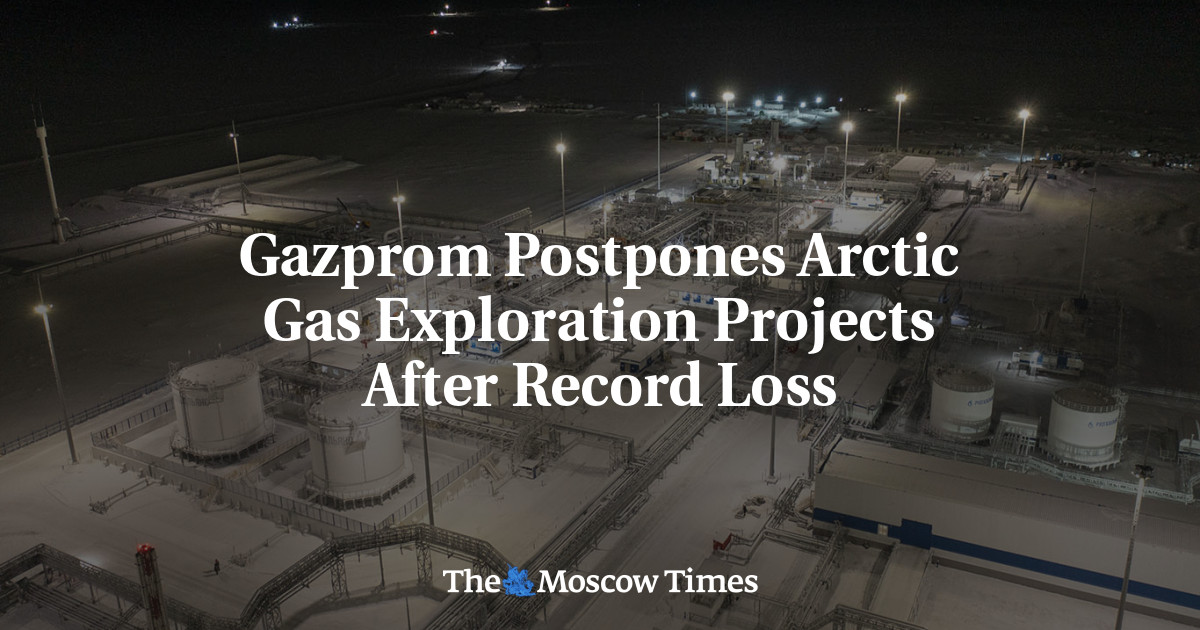
Gazprom is postponing several major offshore exploration projects in the Arctic, the Interfax news agency reported, citing data from the state register of geological study of subsoil.
The move comes amid record losses, Western sanctions in response to the invasion of Ukraine and China’s refusal to sign a new contract for Russian gas.
In the Kara Sea, where Gazprom holds 11 licenses, exploratory well drilling at the Leningradskoye and Obruchevsky sites has been pushed back by four years, from 2029-2031 to 2033-2035, and from 2029-2032 to 2033-2036, respectively. Drilling at the Nevsky site is now scheduled for 2036 instead of 2032, while the Morskoy site has been removed from the plan entirely.
In the Barents Sea, where Gazprom holds seven licenses, work at the Medvezhyye and Fersmanovsky sites — where the company planned to drill three exploratory wells — has also been postponed by four years, from 2031-2032 to 2035-2036.
The Arctic accounts for over 80% of Russia’s natural gas production and an estimated 20% of its crude production, according to the International Energy Agency.
Gazprom’s decision to postpone its Arctic projects comes amid a sharp deterioration in its financial situation and stalled negotiations with China over the Power of Siberia 2 pipeline.
The project, which has been under discussion for nearly a decade, would have allowed Russia to increase its gas supplies to China to 100 billion cubic meters per year. However, despite President Vladimir Putin’s regular visits to Beijing, the pipeline has not received approval from Chinese President Xi Jinping.
According to the Financial Times, China only agreed to buy gas from the pipeline at domestic Russian prices — around $60 per 1,00 cubic meters — making the project financially unviable, according to analysts from the BCS Financial Group.
Last year, Gazprom recorded its first net loss in 25 years, amounting to $7 billion — a record in the company’s three-decade history.
Russian gas exports fell to 69 billion cubic meters, the lowest level since 1985, while deliveries to Europe, once Gazprom’s largest market, hit their lowest point since the late 1970s.
Although Gazprom reported a profit of 1.042 trillion rubles ($11.7 billion) in the first half of 2024, its core gas business remained in the red, with losses totaling 480 billion rubles ($5.4 billion), or 2.5 billion rubles ($288 million) per day, according to Russian Accounting Standards.